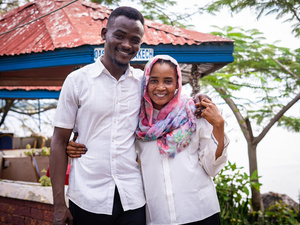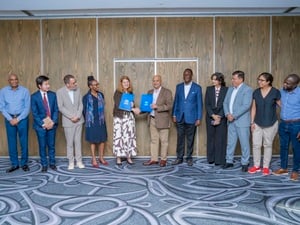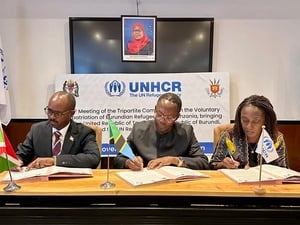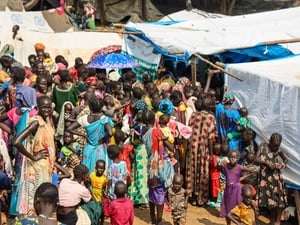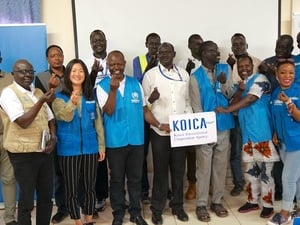UNHCR welcomes the release of eight refugees and asylum-seekers in Agadez
UNHCR welcomes the release of eight refugees and asylum-seekers in Agadez
UNHCR, the UN Refugee Agency, welcomes the release, on 4 April 2025, of eight refugees and asylum-seekers residing at the Humanitarian Centre in Agadez.
Following their arrest on 25 March, UNHCR met with the Niger Directorate for Civil Status, Refugees and Migration to request access to the arrested persons we serve and asked for their rights to be upheld in accordance with Niger’s national legislation and international legal standards.
The arrests intervened after the local authorities decided to dissolve the Refugee Committee at the Agadez Humanitarian Centre and the Ministry of Interior instructed authorities in all regions hosting refugees to dissolve all existing Refugee Committees.
Meanwhile we continue to closely follow the tensed situation prevailing at the Humanitarian Centre, where a group of refugees and asylum-seekers have been organizing daily peaceful protests, expressing dissatisfaction with living conditions and requesting relocation to third countries.
We are particularly concerned about reports of abuse made by refugees and asylum-seekers at the centre and encourage anyone with relevant information to contact us through our available feedback and complaints mechanisms.
UNHCR acknowledges the broader challenges facing refugees in the Humanitarian Centre and throughout Niger. We are concerned that these challenges will be further exacerbated by recent brutal funding cuts affecting UNHCR operations and the broader humanitarian sector across the world.
Refugees and asylum-seekers in the Agadez Humanitarian Centre have access to basic services including healthcare, housing, food, education, water and sanitation. However, considering dwindling funding, assistance provided to refugees across the country and in Agadez will have to be significantly reduced to prioritize emergency, self-reliance and local integration assistance.
UNHCR remains committed to do its utmost to protect refugees and asylum-seekers in Niger and call on donors to urgently support our efforts to assist those fleeing war and persecution. Meanwhile, we encourage refugees at the Humanitarian Centre to seize the opportunity to become self-reliant and locally integrate, through the various programmes that have been set-up with the help of local authorities. This includes vocational, including agricultural, trainings and distributions of livestock kits and access to arable land. We also wish to reiterate that the Humanitarian Centre remains an open facility, and refugees and asylum-seekers have freedom of movement in the whole of Niger and can engage in productive activities or seek employment in Agadez as any other Nigerien national.
ENDS


